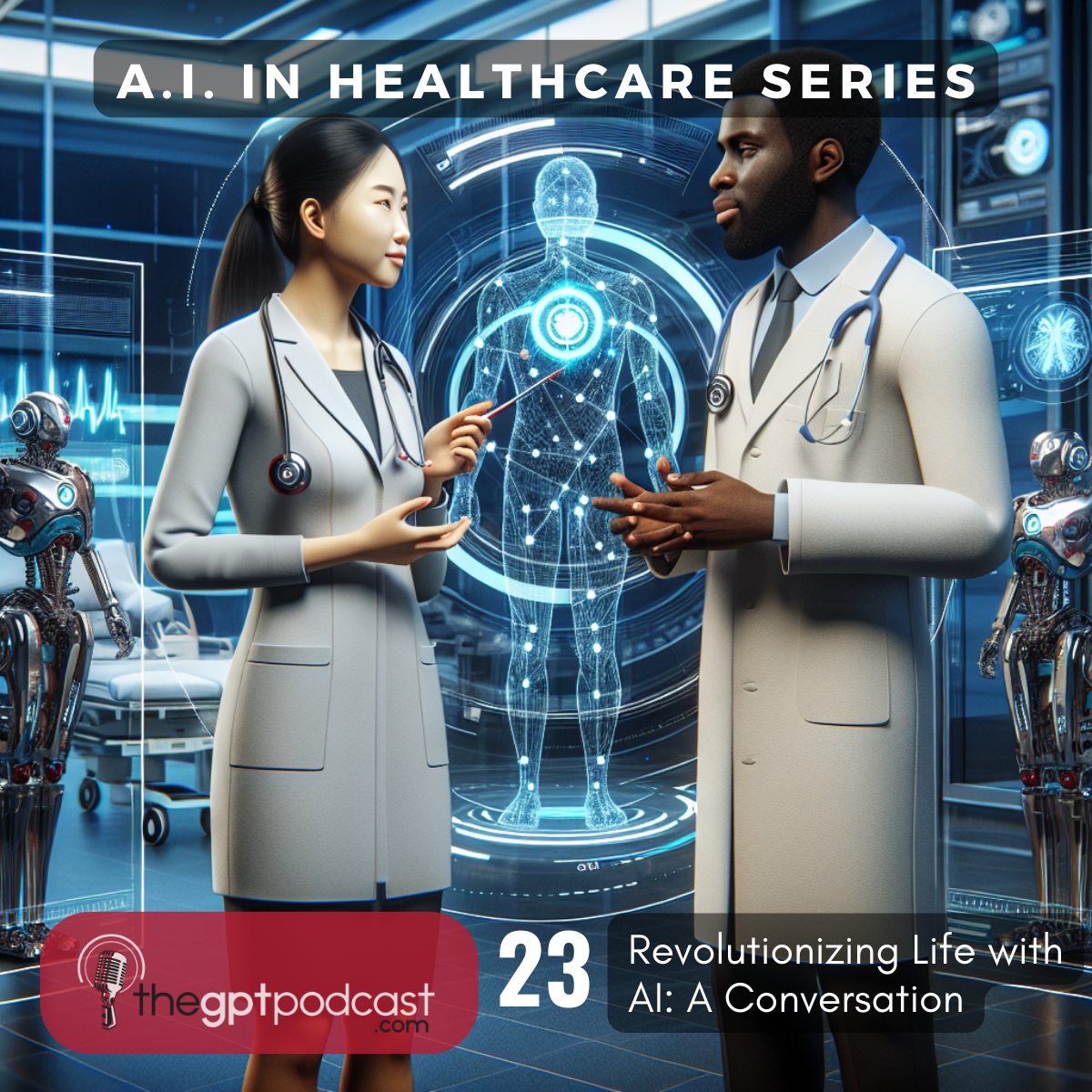Revolutionizing Life with AI: A Conversation
Bill Gates 👨💼 envisions AI 'agents' transforming software industry and providing individualized assistance🖥️. Potential applications in healthcare🩺, education📚, productivity📈 and entertainment🎮 are vast. However, challenges involving privacy🔒 and data structure exist.🌐

Insights from Our Latest Podcast with Dr. Harvey Castro
Welcome back, readers! In our most recent edition of the GPT podcast, our host, Dr. Harvey Castro, and co-host Brooks dove deep into discussions surrounding the future of AI in Healthcare and how it might significantly alter our interaction with technology. Starting off with an analysis of an article by none other than tech whizz, Bill Gates, they elucidate Gates' vision for a world revolutionized by AI.
Gates predicts a future where our engagement with technology is more personalized and dynamic, thanks to the proliferation of highly advanced AI's, which he calls 'agents'. These agents would understand and respond to natural language and take up a range of tasks based on their understanding of individual users. Interestingly, Gates threw light on this concept nearly three decades ago in his book 'The Road Ahead'.
The discussion took a turn towards the future of these AI 'agents', as Gates believes their potential to transform our lives and the software industry is tremendous. AI agents are not just set to change how we interact with computers but are on their way to becoming personal assistants for everyone, delivering nuanced understanding and support in complex assignments beyond the current capacities of AI.
Exploring the numerous potential applications AI 'agents' could have, Gates highlighted sectors like healthcare, education, productivity, and entertainment. In healthcare, AI could take on a greater role beyond administrative tasks and venture into aiding clinicians with patient triage, decision-making, and making care more accessible. Also, AI could potentially democratize mental health therapy, which unfortunately remains inaccessible for a considerable proportion of the population.
Education sector also has much to gain from an AI revolution. Teachers could offload administrative tasks to AI agents, providing them with more time to focus on teaching and tailoring education plans to accommodate individual students' interests and learning styles. When it comes to productivity, AI can revolutionize businesses by providing cutting-edge software, like Microsoft's Copilot or Google's Assistant, that enhance productivity through their independent operation and proactive suggestions.
However, just like any other technological advancement, AI presents its own set of challenges primarily around privacy, data security, and interaction models. It's important to note that as AI gets better at understanding and catering to individual needs, the need for robust data privacy measures and interactive protocols increases.
Looking at the impact AI agents would have on software developers and the broader industry, these AI 'agents’ could replace the current platforms like Android, iOS, and Windows. This new wave of AI could potentially spark off ferocious competition, leading to enhanced and cheaper AI services for users.
Conclusively, AI advancements don't just aim at amplifying system intelligence but aspire to enrich lives, boost productivity, and democratize services in unimaginable ways. Stay tuned to our podcast series, where we continue exploring AI's fascinating future and its myriad potential impacts.
That wraps up our blog post for this week. For more compelling discussions on AI advancements, don't forget to tune into the GPT podcast. Until then, it's goodbye from us.

